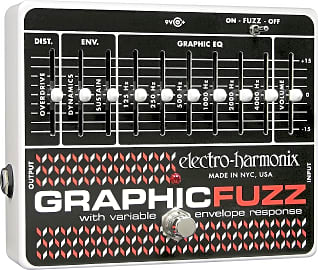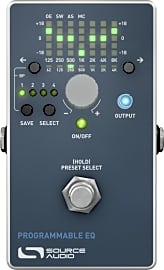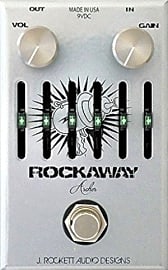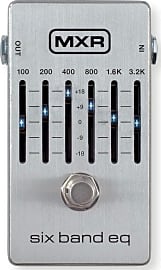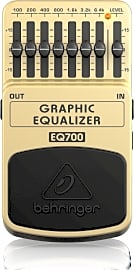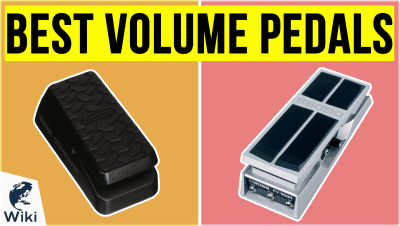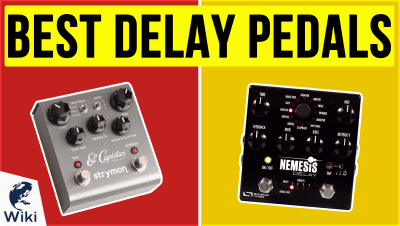The 8 Best Graphic Equalizer Pedals

This wiki has been updated 34 times since it was first published in October of 2016. Capable of boosting or lowering certain frequencies, these graphic equalizer pedals give guitarists control over the tone and quality of their sound. We've included models ideally suited to professional gigging musicians along with some reasonably priced options for the amateur strummers out there, ranked by their frequency ranges, signal-to-noise ratios, and any extra features. When users buy our independently chosen editorial choices, we may earn commissions to help fund the Wiki.
Editor's Notes
September 22, 2020:
While there haven't been a lot of developments in this category beyond a few new models from disreputable brands, Boss has had an exciting model added in their Boss EQ-200. Not only does it track changes to your settings on a little waveform display screen, but it also has a memory bank in which you can save up to four preset layouts. If you add whatever your current settings are on the actual faders, that gives you a total of five settings you can toggle among during a performance, and any guitarist who uses more than one ax in a given performance knows how useful it can be to switch up your sound on the fly. That also makes it a smart choice for electronic musicians and others looking to variegate their sound in real time.
The Source Audio SA170 remains the only other high-tech offering on our list, but it's better suited to the opposite of the artists listed above, as there's a bit of a lag when making adjustments or sorting through its memory banks. For a simpler choice, the MXR M108S is still tough to beat, with some of the best tone in the business. Players looking for more versatility might want to consider the Electro-Harmonix Fuzz for its additional effects, but it is a bit on the pricey side.
July 29, 2019:
With an update to the MXR in our previous number one position now allowing the pedal to offer dual outputs, there was little chance that another option would unseat it. MXR also updated their smaller offering with the same new low-noise circuitry and aluminum housing, but that little pedal is stuck at number six due to a lack of volume or gain controls. The Electro-Harmonix model crept up a spot to number three on the strength of its build quality and flexibility, even if it does take up a lot of space on a board.
Notably, you may find that there are some small, inexpensive options on the market that did not break into the ranking we've curated. While many of these boast similar superficial specs to much more expensive models, the test of time simply isn't there, and there's no reason to think a cut-rate pedal won't start developing noise as the corners cut on its circuitry begin to make themselves known. The only exception to this is perhaps the Behringer option at number seven, which has been around long enough to prove its worth despite its low cost (though users should expect a tiny amount of hiss).
Special Honors
Mesa/Boogie 5-Band While five bands don't offer the kind of flexibility many guitarists desire, this model provides users with an exceptionally durable build and a reliable true bypass switching system, as well as control over the levels of both input and output. It also doesn't hurt that it's designed and built in California by seasoned technicians. mesahollywood.com



